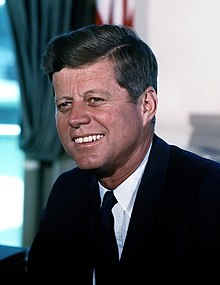A Brief History
On August 1, 1714, the British people dug deep, really deep, in order to select their next King when Queen Anne died. Bypassing more than 50 people higher on the royal ladder to the crown in order to select a Protestant instead of settling for a Catholic, George, Elector of Hanover (Germany), became King of Great Britain! How could so many people higher in the normal hereditary order of succession (the real term for this is primogeniture, but we figure most of our readers are not Professors of History like Dr. Zar!) be passed over? Simply because the British had passed the Act of Settlement 1701, which forbade a Catholic person to succeed to the throne of Britain. Thus, George was the closest relative of Queen Anne that was a Protestant, and it fell to him to become the first Hanoverian King and the beginning of the Georgian Era. In spite of discontent by some Catholics (Jacobites) and potential heirs of the throne, the law stood and George became King.
Digging Deeper
While it seems odd that the British people would rather have a German on the throne than to settle for a Catholic, religion so often trumps national borders that we really should not be surprised at all. Even today, in what we consider a “modern” era, an enlightened time of science and reason, etc., and we still have religion overshadowing nationality and country all over the world. Even in the United States, where we have enshrined in our Amendments to the Constitution the prohibition against a national religion, usually interpreted as “separation of church and state,” we have hot debates stoked by fears and animosity concerning various religions. Moronic panic about “Sharia Law” being imposed on Americans (this could never happen) has many Americans believing Muslim Americans cannot have loyalty to the US and must have loyalty first to Islam. The same has been said in the past about Jewish Americans (and still is, as plenty of rubes in the US still believe any American Jew is loyal to Israel over the US) and Catholic Americans. In fact, such fears of a potential Catholic President being loyal to the Pope in Rome instead of to the American people and the Constitution had long prevented the successful campaign of Catholics for President until John F. Kennedy was elected in 1960. JFK had to publicly state his loyalty was to America first, over the Vatican before people would vote for him. JFK had tried to deflect the virulent anti-Catholic hatred in the US by pointing out other countries that seemed to have evolved into a higher level of religious tolerance by saying, “Are we going to admit to the world that a Jew can be elected Mayor of Dublin, a Protestant can be chosen Foreign Minister of France, a Moslem can be elected to the Israeli parliament—but a Catholic cannot be President of the United States? Are we going to admit to the world–worse still, are we going to admit to ourselves—that one-third of the American people is forever barred from the White House?” Fair points indeed, but unsuccessful, requiring more commitment from Kennedy to assuage Protestant Americans’ fears.

Some countries have to have a constitutional allotment of parts of government to various religions or sects in order to maintain peace and order from degenerating into civil war, though such efforts are often unsuccessful in keeping the peace. (Iraq and Lebanon come to mind.) While the United States has still not had a second Catholic President, being a Catholic does not really seem to be as big a deal in politics anymore. In fact, the Supreme Court of the United States is composed of Jews and Catholics only, and has not had a Protestant justice for several years!
Getting back to George I (reign 1714-1727), the British Crown lost some of its power, ceding much power to the Parliamentary government headed by the Prime Minister. When George I died in 1727, aptly while in Germany, he remained there to be buried, the last British monarch to not be buried in Britain. He was followed on the throne by Kings George II through IV (reign 1820-1830), giving the era its name, the “Georgian Era.” (Note: The Georgian Era is often expanded to include the reign of king William IV, 1830-1837, which upon his death was succeeded by Queen Victorian, starting the Victorian Era.)

The German heritage of the British Royal Family became a point of contention when Europe became consumed by the flames of World War I, so that King George V changed the family name from Saxe-Coburg and Gotha to Windsor in 1917, an effort to appease the uneasy British masses weary of war and wary of a monarchy rooted in Germany, then the dire enemy of the British.
While having monarchies around the world provides entertainment to many people, and fodder for the gossip mills, many people (as in this author) believe monarchies are obsolete and should be abolished. We would like to know what our readers think about this subject. Are the Royals/Nobility parasites or do they serve a vital purpose?

Question for students (and subscribers): Should the British Monarchy be abolished? Please let us know in the comments section below this article.
If you liked this article and would like to receive notification of new articles, please feel welcome to subscribe to History and Headlines by liking us on Facebook and becoming one of our patrons!
Your readership is much appreciated!
Historical Evidence
For more information, please see…
Cawthorne, Nigel. Kings and Queens of England. Metro Books, 2010.
Crofton, Ian. The Kings and Queens of England. Quercus, 2007.
Gaskoin, CJB. The Story of the Hanoverians. Didactic Press, 2013.
Wald, Kenneth, and Alison Calhoun-Brown. Religion and Politics in the United States. Rowman & Littlefield Publisher, 2018.
The featured image in this article, a 1718 quarter-guinea coin from the reign of George I, showing him in profile, is licensed by Classical Numismatic Group, Inc. (http://www.cngcoins.com) under the Creative Commons Attribution-Share Alike 3.0 Unported license.


